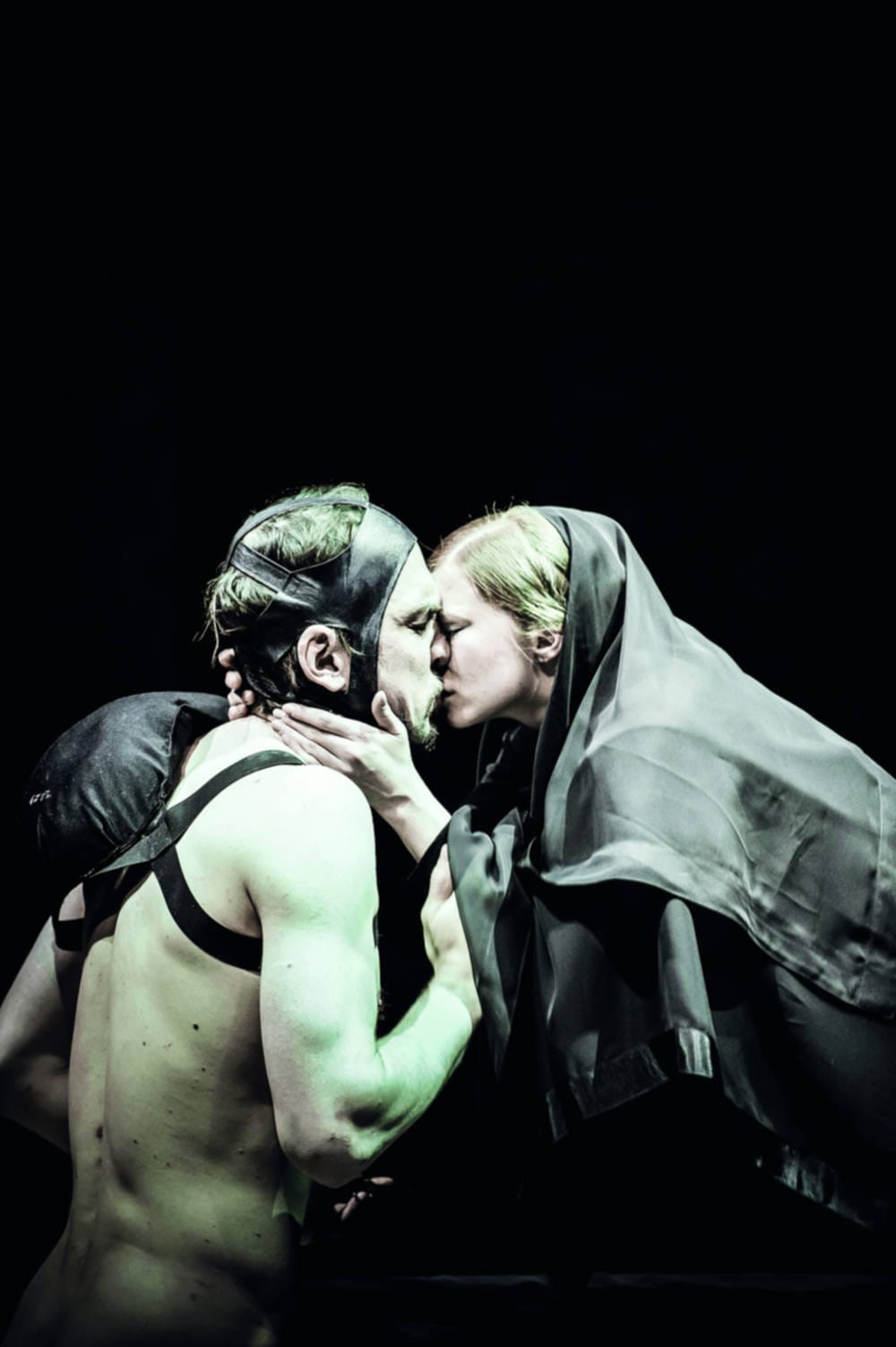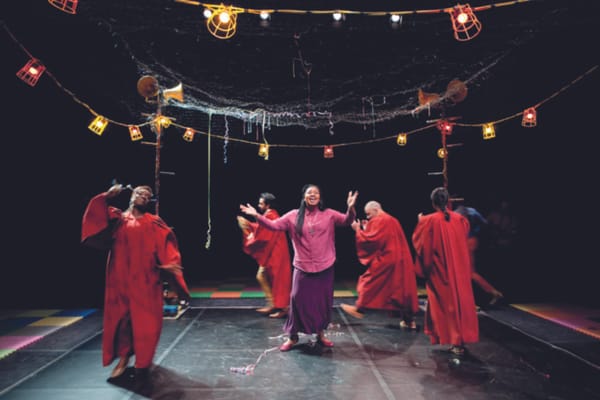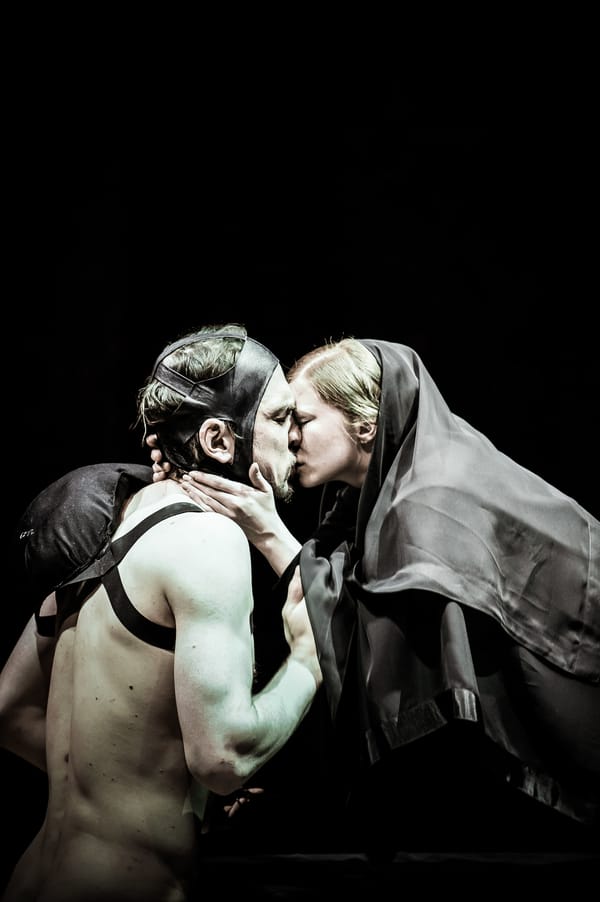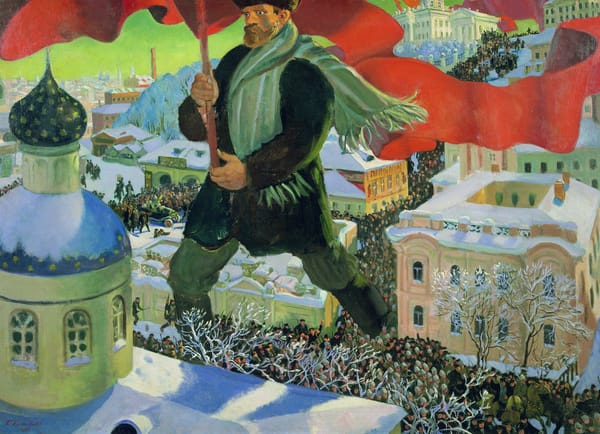Richard III | The Bard given Teutonic overtones
from 16th – 19th February

Thomas Ostermeier’s production of Richard III is a celebration of the wicked, the tragic, and the profane. The play is on tour from Schaubühne Berlin and is performed entirely in German with English surtitles on the stage.
Not only is this a departure from the original Shakespeare in terms of language, but also in setting and style. Thanks to a soundtrack of loud industrial music, a live on-stage drummer, pyrotechnics, and shouted German, the play at times feels like a concert by heavy-metal band Rammstein. Fittingly Richard is portrayed by Lars Eidinger – a renowned German theatre and television actor – like a depraved rock star. This portrayal is no doubt greatly influenced by Rammstein’s frontman Till Lindemann... Edinger flourishes in a role where he can be lewd and shocking: his comedy is deeply cynical, and he delights in breaking the fourth wall. At one point in the penultimate scene, a beeping noise disrupts Lars in mid-speech and he stands, on top of a table in his crown demanding that the audience identify and stop this sound as he will only continue when it has disappeared. The show is filled with similar interruptions, such as Edinger reading aloud the English surtitles, interrogating members of the audience going to the bathroom, or at one point rapping the script out loud to rock music.
Despite these alterations the inner character of Richard is kept close to the original. He is a hunchback with a deformed foot, deeply bitter and cynical: “I am determined to prove a villain / And hate the idle pleasures of these days”. Pathological in his obsession for power, and very much aware of the irony of his circumstance – “I'll marry Warwick's youngest daughter. What, though I kill'd her husband and her father?” – Edinger is certainly the right casting choice to carry these traits forward. The progression of Richard from anti-hero, whose actions appal but whose rhetoric enamours, to pure villain is eloquently portrayed. By the time the two princes have been murdered in the tower we very much empathise with Queen Elizabeth and Margaret, despite earlier their being the butt of Richard’s jokes and scorn. One striking alteration is that the battle at the end is replaced by a short physical monologue where Richard is murdered and suspended precariously from the theatre ceiling by his foot.
The production does not surrender any of its idiosyncrasy to the English theatre tradition, and retains the clear marks of German absurdity: Richard strips nude and removes his hunchback and club-foot when courting Lady Anne; similarly the murder of Clarence is made darkly humorous but also excessively gory, and the effect is one of cognitive dissonance – most of the audience don’t know whether to laugh or be appalled. The setting is self-consciously anachronistic, the opening scene begins with the cast in tuxedos and designer dresses as the royalty sip from champagne flutes. This works well – Richard III is full of references to the debauchery of the house of York, at a time when leisure meant banquets, masked balls, and waltzing. Making this apparent to a modern audience means updating costumes, locations, and references.
Richard III’s corpse was identified and exhumed from a city council car park in Leicester, by a team of archaeologists and scientists at Leicester University in 2012 who then restored the remains to Leicester Cathedral. He was the last English monarch to be killed in battle and his death marked the end of the house Plantagenet and rise of the Tudors. Over generations his physical whereabouts may have been forgotten, but his character was not, and thanks to Shakespeare’s pro-Tudor agenda he has been immortalised as a monster in English culture. Whether his infamy is deserved or not is still an area of debate. Either way, Richard III is not a great play due to its historical accuracy, but instead because it tells a timeless story of the creation of an anti-hero through the politics of rejection. For all its absurdity, Schaubühne Berlin’s production touches the heart of Richard III’s character – it is a shocking depiction of the face of tyranny at such an apposite moment in global politics.









